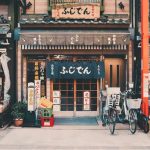japanese pinball game
The next national holiday is Nov 23, Kinrokansha no Hi (Labor Thanksgiving Day).
pachinko gambling online
If you're looking to buy direct from Japan, whether it's uji-tea products or anime figures, KitKats or Buddha statues, you need look no further than ZenPlus. This online marketplace has more than 2,000 Japan-based shops advertising their products for sale.
pachinko gambling online
japanese pinball game
 When it comes to cryptocurrency in Asia, one of the biggest players is undoubtedly Japan. The country is considered one of the better crypto hubs on the continent, especially when compared to places like China. As the race for global crypto supremacy continues to heat up, more eyes will inevitably be on Japan. But what exactly is the state of crypto in Japan? And what trajectory is the country on?
When it comes to cryptocurrency in Asia, one of the biggest players is undoubtedly Japan. The country is considered one of the better crypto hubs on the continent, especially when compared to places like China. As the race for global crypto supremacy continues to heat up, more eyes will inevitably be on Japan. But what exactly is the state of crypto in Japan? And what trajectory is the country on?
pachinko gambling online
 It was an ending for the ages. The two very best baseball players of their generation, teammates with the Los Angeles Angels but now facing each in the final that would decide the best team in the world.
It was an ending for the ages. The two very best baseball players of their generation, teammates with the Los Angeles Angels but now facing each in the final that would decide the best team in the world.
pachinko gambling online
 JIKATABI Footwear
JIKATABI Footwear
The movie remake of Dune was one of the most anticipated releases of recent years. Japan Store supplied a large order of jikatabi items for the production, including the Marugo Magic Safety, Soukaido I-98 and Soukaido VO-80 models.
These popular models will now have the added cache of being suitable for cosplay!
See more...
pachinko gambling online
SIGHTSEEING GUIDES
Browse our extensive sightseeing guide to the whole country, with information on all the major sights.
USEFUL INFO
Japan Zone has a wide variety of useful information for the traveler.
Sites We Like
- 高額ボーナス満載!新しいオンラインカジノはこれ!
- 入金不要!オンラインカジノボーナス大全集へようこそ!
- TEiJ - Teaching English in Japan
- ランキング、おすすめ、その他のオンラインカジノ情報 - Kajinoのおすすすめサイトをチェック(2023年版)
- onlinecasinowiki.com
- ブックメーカーを探すならBetinJapan
- オンラインカジノのおすすめ&比較はOnline Casino Japan
- Online Casino Osusume(
オンライン カジノ おすすめ)は、オンラインギャンブル業界で長年の経験を持つ専門家のチームです。 - Japanese in Canada can play online casino at casimoose.ca.
- List of online casinos with useful information on this official Japanese website (カジノ オンライン)!



